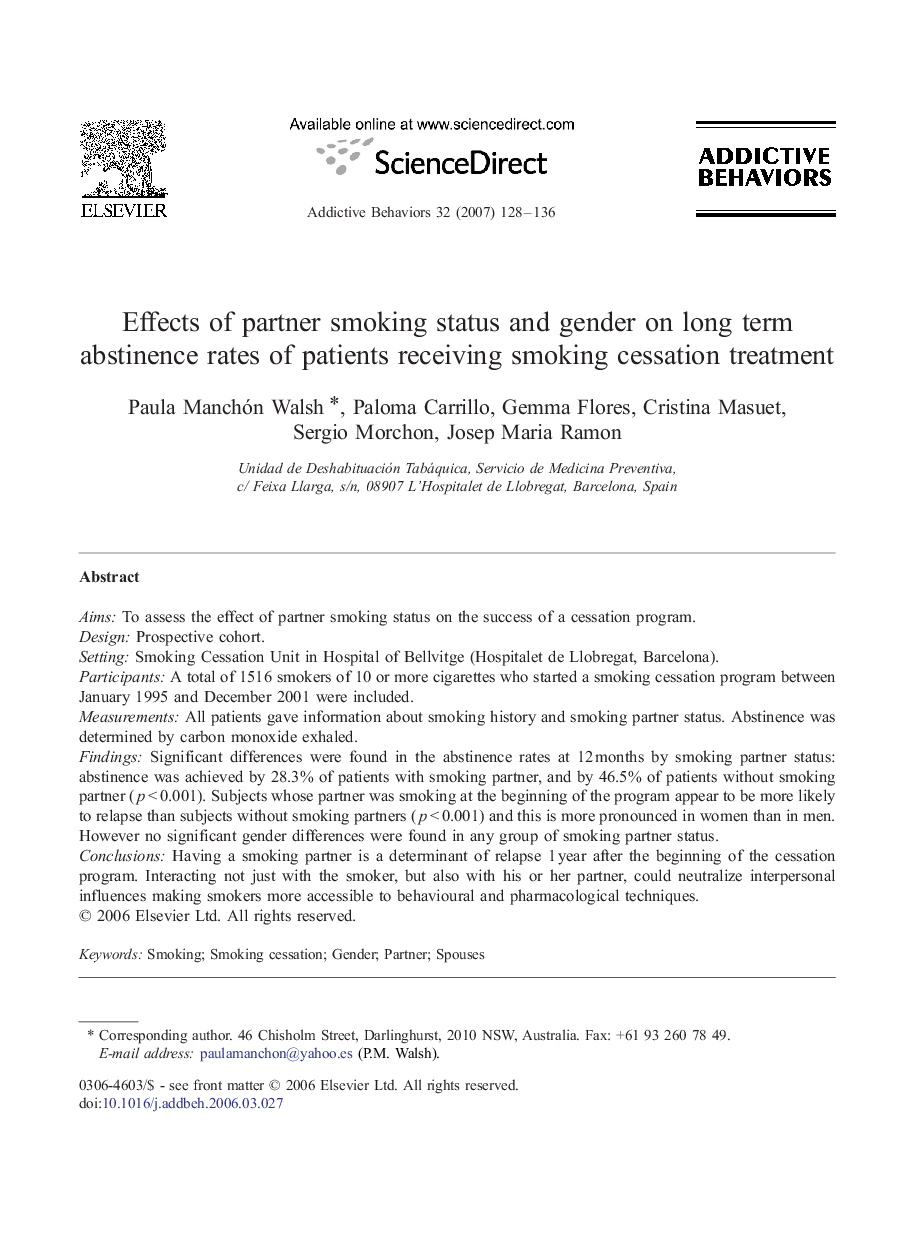| Article ID | Journal | Published Year | Pages | File Type |
|---|---|---|---|---|
| 900343 | Addictive Behaviors | 2007 | 9 Pages |
AimsTo assess the effect of partner smoking status on the success of a cessation program.DesignProspective cohort.SettingSmoking Cessation Unit in Hospital of Bellvitge (Hospitalet de Llobregat, Barcelona).ParticipantsA total of 1516 smokers of 10 or more cigarettes who started a smoking cessation program between January 1995 and December 2001 were included.MeasurementsAll patients gave information about smoking history and smoking partner status. Abstinence was determined by carbon monoxide exhaled.FindingsSignificant differences were found in the abstinence rates at 12 months by smoking partner status: abstinence was achieved by 28.3% of patients with smoking partner, and by 46.5% of patients without smoking partner (p < 0.001). Subjects whose partner was smoking at the beginning of the program appear to be more likely to relapse than subjects without smoking partners (p < 0.001) and this is more pronounced in women than in men. However no significant gender differences were found in any group of smoking partner status.ConclusionsHaving a smoking partner is a determinant of relapse 1 year after the beginning of the cessation program. Interacting not just with the smoker, but also with his or her partner, could neutralize interpersonal influences making smokers more accessible to behavioural and pharmacological techniques.
